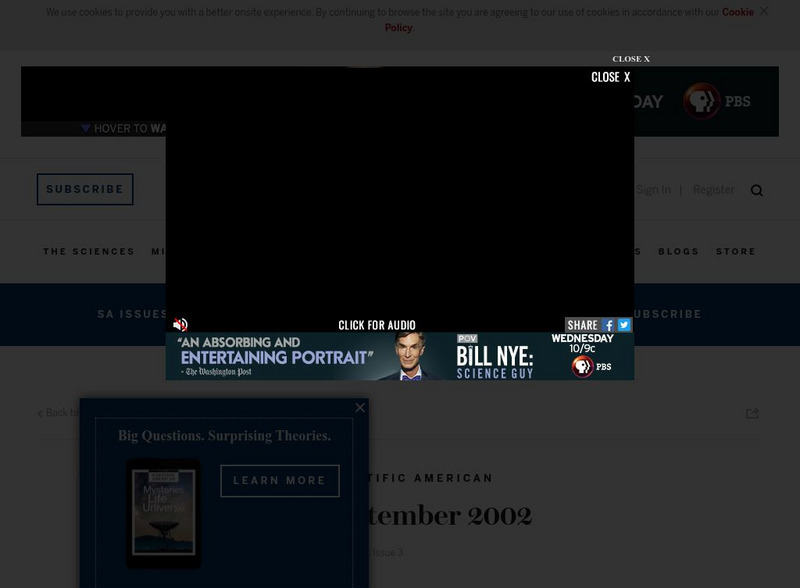Hi, what do you want to do?
Curated OER
Weird Science
Learners design their perfect friend. In this adjectives lesson students imagine having a super-computer that analyzes people. Learners work to solve personality description word puzzles. Students choose adjectives that describe their...
Curated OER
What Science Suggests About 'Weather Weirding'
Here is an activity that you can use to help upper elementary or middle schoolers to meet Common Core literacy standards for science and technology. Youngsters read the article on extreme weather patterns, "Weather Runs Hot and Cold, So...
NOAA
Deep-Sea Ecosystems – Life is Weird!
A pool of brine in the deep sea can be up to four times as salty as the surrounding sea water. The deep sea ecosystem relies on chemosynthesis and the organisms that live there are often strange to us. The lesson focuses on researching...
Curated OER
Weather with Pink Snow and Other Weird Weather
Third graders explore different kinds of weather. In this weather lesson, 3rd graders discover the different ways humans protect themselves from weather. Students read the book Pink Snow and Other Weird Weather by Jennifer...
Curated OER
Strange Winter Weather Affects Nature, People
Students react to a series of statements about the weather, then read a news article about the affect of unusual winter weather on people and animals. In this meteorology and current events lesson, the teacher introduces an article with...
Curated OER
Bank On It! Worms
In this science worksheet, students fill in 6 blanks to complete an article about worms. They select words from a word bank. Students must use knowledge punctuation and syntax to put the words in the correct blanks.
Other
Indiana Public Media: A Moment of Science: Videos, Podcast, and Radio Program
Moment of Science, a two-minute public radio broadcast on topics of the day with a science twist, publishes a range of ancillary material that aligns with its daily coverage of science news. Includes an archive of past shows, articles,...
Scientific American
Scientific American: Smart People Believe Weird Things
This article, published by Scientific American (September 2002), explores how smart people can believe weird and silly things. The article comes to the conclusion that our beliefs are shaped more by our environment than our understanding...












